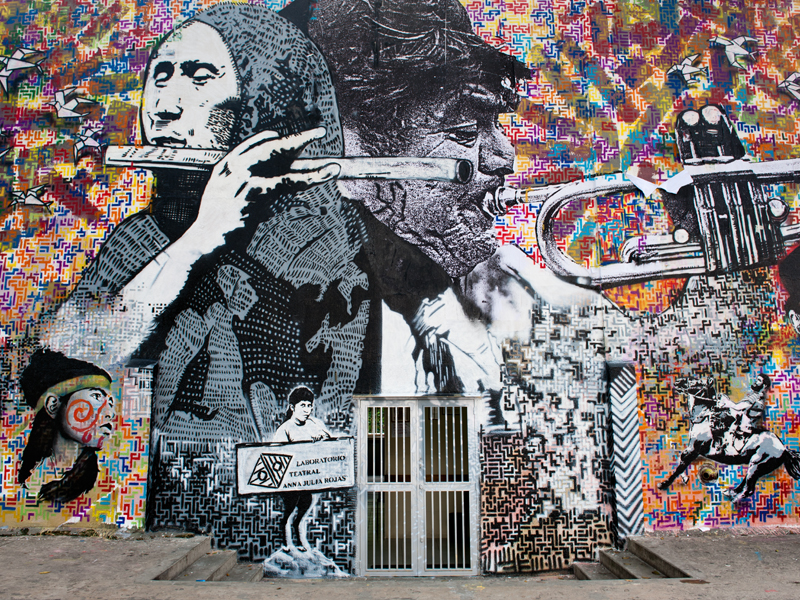My Hopes for Venezuela
Share
It’s been hard for me to watch the violent and deadly anti-government demonstrations in Venezuela over the last couple months. Caracas is a city very close to my heart, after traveling there in 2012 for a journalism project. The mass protests are indeed heartbreaking (as the death toll continues to steadily climb during the street battles), it’s not at all surprising. The seeds of unrest amongst Venezuela’s middle- and lower-class had already been planted a long time ago.
Caracas is considered the world’s deadliest city, though the statistics are muddy since so many murders go unreported. The problems are rooted in an extreme socio-economic gap between rich and poor, propped up by the socialist government. While Venezuela’s wealthy own shopping malls and live behind steel fences and bodyguards, the poor struggle with rations and mothers can’t even get their hands on powdered milk. Gas is cheap, but the roads are covered in potholes. What could be a beautiful city looks tired and broken down.
 I spent most of my time interviewing in a slum and it became very clear to me how these political issues were manifested in everyday people’s lives. I met a former police offer turned travel agent, who was thrown into jail and accused of stealing when he tried to fight corruption in the force. After a big bust, the evidence (money and drugs) disappeared, and he alerted the higher-ups. The blame was turned onto him, and he was lucky to be released and to go away quietly. In Venezuela, police and the gangs work together, and in some cases, the police are equally as criminal.
I spent most of my time interviewing in a slum and it became very clear to me how these political issues were manifested in everyday people’s lives. I met a former police offer turned travel agent, who was thrown into jail and accused of stealing when he tried to fight corruption in the force. After a big bust, the evidence (money and drugs) disappeared, and he alerted the higher-ups. The blame was turned onto him, and he was lucky to be released and to go away quietly. In Venezuela, police and the gangs work together, and in some cases, the police are equally as criminal.
I met a nearly 80-year-old Catholic priest from Spain, who came there 30 years ago to take over a parish. These days, he buries more young people than old, and is deeply pained by this reversal of the natural order. I met a dentist who offers discounted cleanings, to stop people from getting their teeth fixed at unqualified and unsanitary backdoor shops.
One night, I sat down with the slum’s ruling gang. They consider themselves to be the protectors of the community, stopping rival gangs from coming in and starting trouble. Sometimes they sleep with guns under their pillows and take drugs to stay up all night. A few months before, one of their members died in a surprise shooting.
 Everyone I met was very kind to me, and they had never met anyone from outside Venezuela before. They invited me into their homes, introduced me to their children and trusted me to tell their story. This experience made me feel incredibly lucky to be from a country like Canada, where rule of law is respected and maintained, and young men aren’t systemically forced into crime.
Everyone I met was very kind to me, and they had never met anyone from outside Venezuela before. They invited me into their homes, introduced me to their children and trusted me to tell their story. This experience made me feel incredibly lucky to be from a country like Canada, where rule of law is respected and maintained, and young men aren’t systemically forced into crime.
Venezuelans want to show the real Caracas, a place that is a culturally rich and unique. There is a thriving alternative arts and graffiti scene, with a lot of young talent, and a traditional cuisine that is so hearty, spicy and full of soul. Venezuela and its people have a lot of beauty to offer, and I hope one day many others will get to share in the experience that I had.
*All photos belong to Frédéric Solenthaler.
The post My Hopes for Venezuela appeared first on tentree.